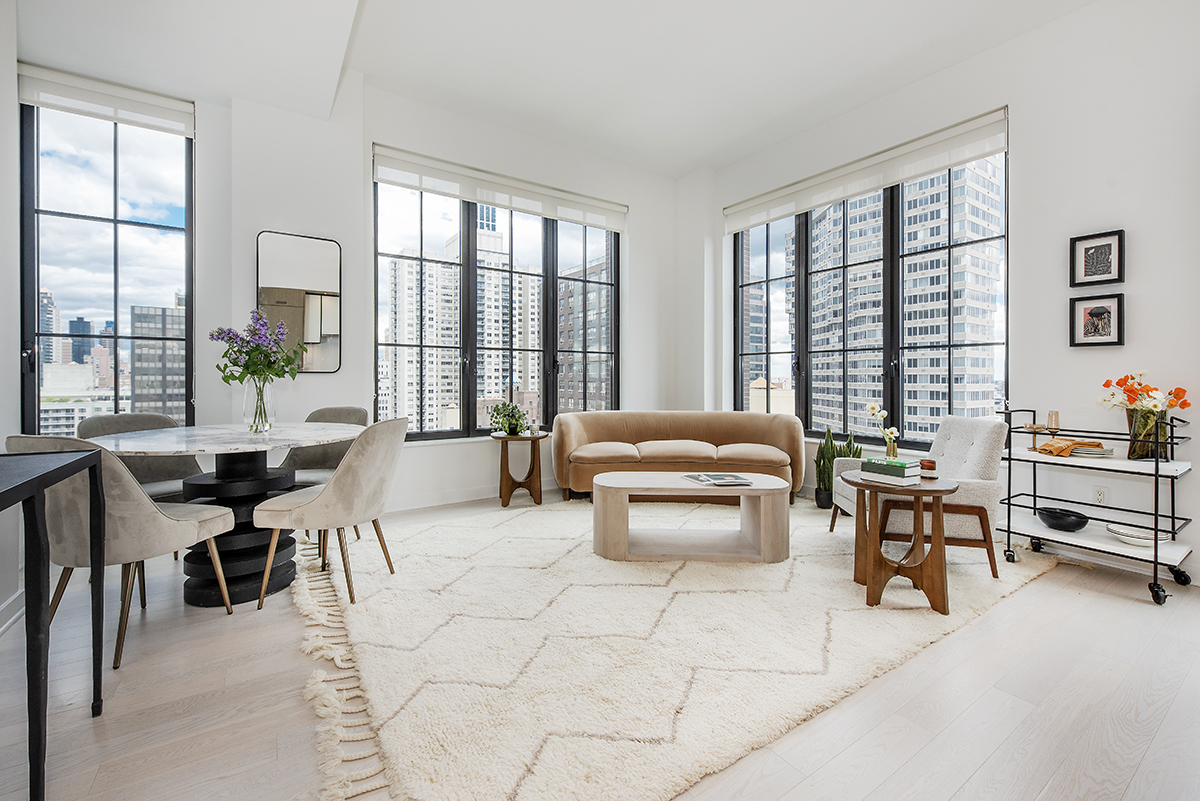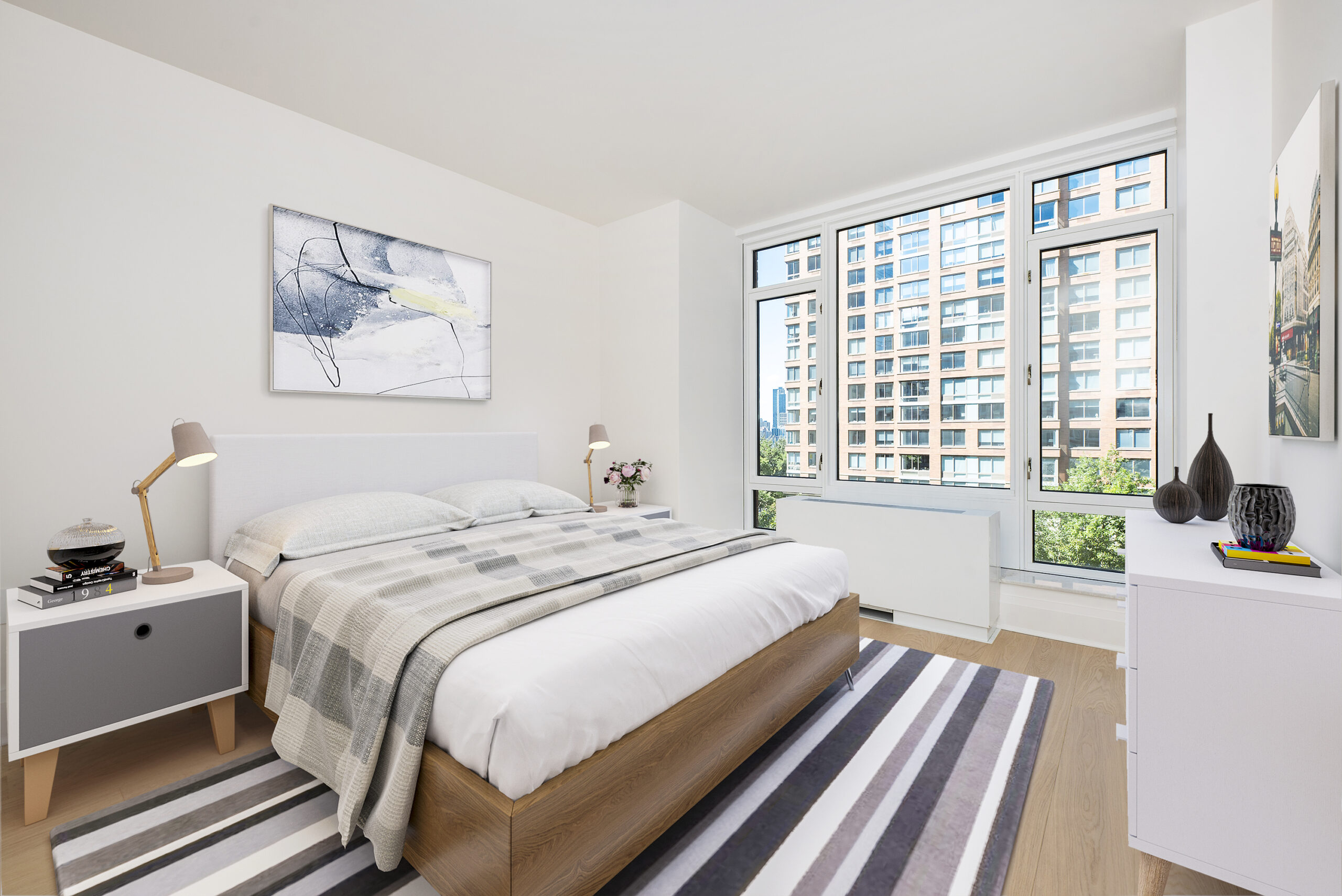Parents buying apartment for child attending Columbia University / NYU
Posted by Wei Min Tan on April 16, 2025
Parents buying an apartment for a child attending Columbia University or New York University (NYU) is a strategic play that many of our clients do. Indeed, the cost of sending a child to one of these prestigious New York universities is already very high. To buy a condo apartment dramatically increases the cost. Why do it? Here is how we analyze the situation of whether to buy a condo for the student attending college.
Read about Wei Min’s style in Best Manhattan property agents and Role of a buyer’s broker.
Appreciation of the condo during the child’s time at Columbia / NYU
The biggest advantage of buying a condo for the child is the appreciation. Property appreciates over time, and in Manhattan, the average from 1999 to 2025 is around 6 percent.
It depends on when you buy. From 2017 to 2025 the market has been going sideways. Down from 2017 to 2020 and back up from 2021 to 2025. As of Q1’2025, condos were at $2,130 per sqft, almost back to the peak of 2017 which was at $2,149 per sqft.
Assuming the child attends Columbia University or New York University during a normal (non downturn) property market, the appreciation of the property will very likely be enough to partly or even fully cover the expense of the education. There is no appreciation or equity growth when staying at the dorms.
Weimin’s article, Manhattan condo historical price trend
Client’s luxury condo in Upper West Side, close to the 72 St subway station and Columbia University.
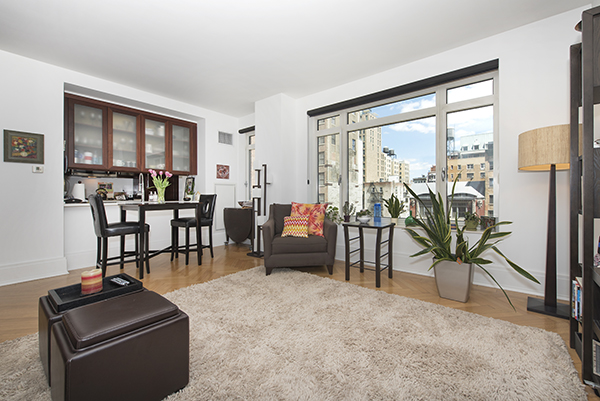
Columbia University or NYU dorm rooms are expensive
Do you know how colleges make money? It’s in real estate. College students pay very high dorm room fees to stay at the universities’ dormitories. When you account for the size and space of a dorm room, the price per sqft for the rent is extremely high. The university is essentially a landlord and collects rents from students while the university’s property prices increase over time. Students staying in the dorms also need a meal plan from the university and this is another source of revenue for the university.
Many students move off campus when they are able to save on the high dorm room and meal plan costs. Another benefit of staying off campus is being able to share an apartment or house with friends. If a parent decides to invest in an apartment, the monthly carrying costs of common charges and taxes will likely be lower than what the student is paying to stay at the dorms.
Having a condo means your own kitchen to prepare your own food. As opposed to eating outside daily, whether it’s dorm food or restaurant food.
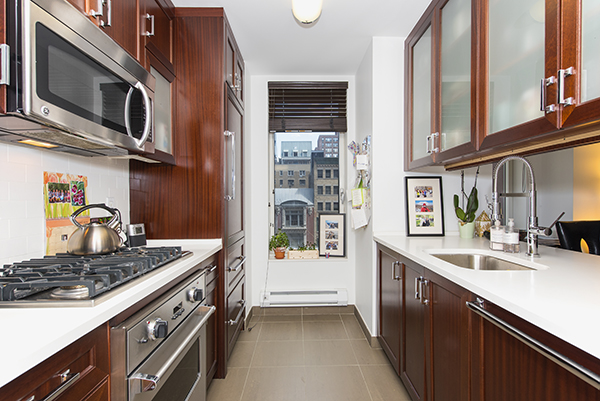
Luxury condo bathroom. No sharing with 50 other students which is typical in communal dorm living.
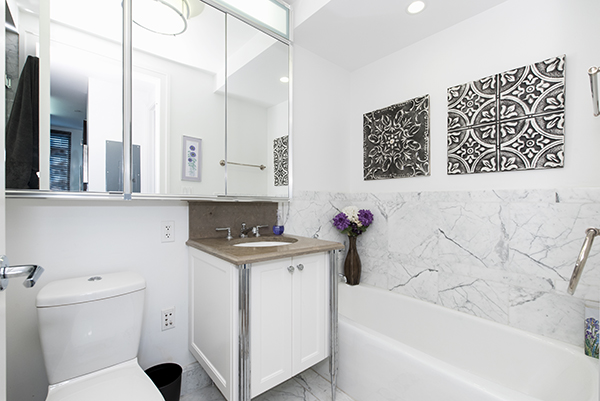
Quality of life
Living in a luxury condo offers a better quality of life, in terms of meals, size of living space, amenities in the building such as a gym, residents’ lounge, roof deck. The dorm I was first assigned to during graduate school many years ago was the width of my extended arms! Luckily I managed to get transferred to a larger dorm or I would have lost my mind. It is already very stressful attending a top university. Dorm rooms sometimes add to students’ stress levels.
There is also more privacy living in your own apartment than in a dorm room with fellow students walking, talking and doing all that college students do, along the hallway 24 hours a day.
Nevertheless, dorm living does have its advantages, the main one being socialization with other students. At least during my time, undergraduate dorm rooms were usually wide open. While there is almost no privacy, it’s great at getting people to know one another. This is why universities usually require freshmen and sophomores to stay at the dorms. Juniors, seniors and graduate students can usually opt to move off campus. Dorms for these older students are quieter so the socialization benefit of dorm living is not as pronounced as at the undergrad level.
Weimin’s article, What does a Manhattan luxury condo mean?
What We Do
We focus on global investors buying Manhattan condos for portfolio diversification and long term return-on-investment.
1) Identify the right buy based on objectives
2) Manage the buy process
3) Rent out the property
4) Manage tenants
5) Market the property at the eventual sale

Follow On Instagram

